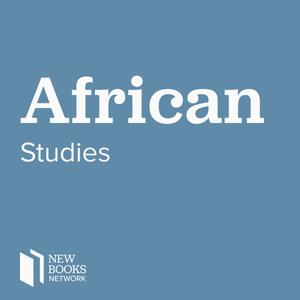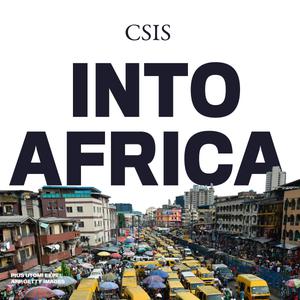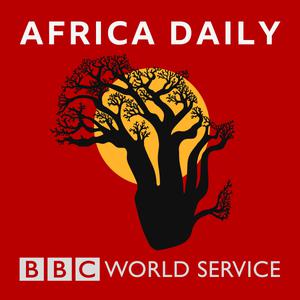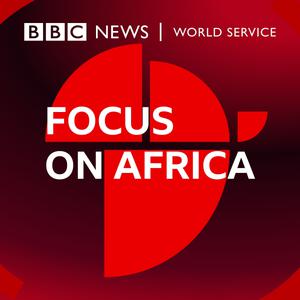
New Books in African Studies
Interviews with Scholars of Africa about their New Books
- 2 hours 10 minutesZvenyika Eckson Mugari, "Press Silence in Postcolonial Zimbabwe: News Whiteouts, Journalism and Power" (Routledge, 2020)
Zvenyika Eckson Mugari's book Press Silence in Postcolonial Zimbabwe: News Whiteouts, Journalism and Power (Routledge, 2020) focuses on news silence in Zimbabwe, taking as a point of departure the (in)famous blank spaces (whiteouts) which newspapers published to protest official censorship policy imposed by the Rhodesian government from the mid-1960s to the end of that decade.
Based on archived news content, the author investigates the cause(s) of the disappearance of blank spaces in Zimbabwe's newspapers and establishes whether and how the blank spaces may have been continued by stealth and proposes a model of doing journalism where news is inclusive, just and less productive of blank spaces. The author explores the broader ramifications of news silences, tacit or covert on society's sense of the world and their place in it. It questions whether and how news media continued with the practice of epistemic deletions and continue to draw on the colonial archive for conceptual maps with which to define and interpret contemporary postcolonial realities and challenges in Zimbabwe.
This book will be of interest to scholars, researchers and academics researching the press in contemporary Africa, critical media analysis, media and society studies, and news as discourse.
Learn more about your ad choices. Visit megaphone.fm/adchoices
Support our show by becoming a premium member! https://newbooksnetwork.supportingcast.fm/african-studies
3 May 2024, 8:00 am - 1 hour 35 minutesBoubacar N’Diaye, "Mauritania's Colonels: Political Leadership, Civil-Military Relations and Democratization" (Routledge, 2017)
Boubacar N’Diaye's book Mauritania's Colonels: Political Leadership, Civil-Military Relations and Democratization (Routledge, 2017), the result of more than a decade of research, focuses on the socio-political dynamics and civil-military relations in a little studied country: Mauritania, located in the troubled North-western part of Africa. Boubacar N'Diaye brings into light the political evolution of this country which holds lessons for African politics, and could affect the future of the West African sub-region.
Mauritania's Colonels examines the personalities and policy of five military officers turned heads of state who ruled Mauritania for nearly forty years. After comparing and contrasting the personal traits, social origins, itineraries, and evolution as military officers, it critically evaluates the policies they enacted to address four key challenges their country faces. These are, namely, the difficult cohabitation between the country's ethno-cultural communities, the illusive democratization and military withdrawal from politics, the judicious management of the country's abundant natural resources to meet the socioeconomic needs of their people, and the prudent conduct of foreign policy given Mauritania's location, straddling Arab North Africa and Sub-Saharan Africa.
Showing the impact that each Colonel has had on the evolution of Mauritania, this book will be of interest to students and scholars of West Africa, African politics, civil-military relations and democratization processes.
Learn more about your ad choices. Visit megaphone.fm/adchoices
Support our show by becoming a premium member! https://newbooksnetwork.supportingcast.fm/african-studies
25 April 2024, 8:00 am - 1 hour 2 minutesFumilayo Showers, "Migrants Who Care: West Africans Working and Building Lives in U.S. Health Care" (Rutgers UP, 2023)
As the U.S. population ages and as health care needs become more complex, demand for paid care workers in home and institutional settings has increased. This book draws attention to the reserve of immigrant labour that is called on to meet this need.
Migrants Who Care: West Africans Working and Building Lives in U.S. Health Care (Rutgers University Press, 2023) by Dr. Fumilayo Showers tells the little-known story of a group of English-speaking West African immigrants who have become central to the U.S. health and long-term care systems. With high human capital and middle-class pre-migration backgrounds, these immigrants - hailing from countries as diverse as Cameroon, Sierra Leone, Ghana, Nigeria, and Liberia - encounter blocked opportunities in the U.S. labour market. They then work in the United States, as home health aides, certified nursing assistants, qualified disability support professionals, and licensed practical and registered nurses.
This book reveals the global, political, social, and economic factors that have facilitated the entry of West African women and men into the health care labour force (home and institutional care for older adults and individuals with physical and intellectual disabilities; and skilled nursing). It highlights these immigrants’ role as labour brokers who tap into their local ethnic and immigrant communities to channel co-ethnics to meet this labour demand. It illustrates how West African care workers understand their work across various occupational settings and segments in the healthcare industry. This book reveals the transformative processes migrants undergo as they become produced, repackaged, and deployed as health care workers after migration.
Ultimately, this book tells the very real and human story of an immigrant group surmounting tremendous obstacles to carve out a labour market niche in health care, providing some of the most essential and intimate aspects of care labour to the most vulnerable members of society.
This interview was conducted by Dr. Miranda Melcher whose new book focuses on post-conflict military integration, understanding treaty negotiation and implementation in civil war contexts, with qualitative analysis of the Angolan and Mozambican civil wars.
Learn more about your ad choices. Visit megaphone.fm/adchoices
Support our show by becoming a premium member! https://newbooksnetwork.supportingcast.fm/african-studies
21 April 2024, 8:00 am - 34 minutes 53 secondsCharis Enns and Brock Bersaglio, "Settler Ecologies: The Enduring Nature of Settler Colonialism in Kenya" (U Toronto Press, 2024)
Settler Ecologies: The Enduring Nature of Settler Colonialism in Kenya (University of Toronto Press, 2024) tells the story of how settler colonialism becomes memorialized and lives on through ecological relations. Drawing on eight years of research in Laikipia, Kenya, Charis Enns and Brock Bersaglio use immersive methods to reveal how animals and plants can be enrolled in the reproduction of settler colonialism.
The book details how ecological relations have been unmade and remade to enable settler colonialism to endure as a structure in this part of Kenya. It describes five modes of violent ecological transformation used to prolong structures of settler colonialism: eliminating undesired wild species; rewilding landscapes with more desirable species to settler ecologists; selectively repeopling wilderness to create seemingly more inclusive wild spaces and capitalize on biocultural diversity; rescuing injured animals and species at risk of extinction to shore up moral support for settler ecologies; and extending settler ecologies through landscape approaches to conservation that scale wild spaces.
Settler Ecologies serves as a cautionary tale for future conservation agendas in all settler colonies. While urgent action is needed to halt global biodiversity loss, this book underscores the need to continually question whether the types of nature being preserved advance settler colonial structures or create conditions in which ecologies can otherwise be (re)made and flourish.
Learn more about your ad choices. Visit megaphone.fm/adchoices
Support our show by becoming a premium member! https://newbooksnetwork.supportingcast.fm/african-studies
20 April 2024, 4:00 am - 41 minutes 54 secondsJeremy Black, "The Atlantic Slave Trade in World History" (Routledge, 2015)
In The Atlantic Slave Trade in World History (Routledge, 2015), Jeremy Black presents a compact yet comprehensive survey of slavery and its impact on the world, primarily centered on the Atlantic trade. Opening with a clear discussion of the problems of defining slavery, the book goes on to investigate the Atlantic slave trade from its origins to abolition, including comparisons to other systems of slavery outside the Atlantic region and the persistence of modern-day slavery. Crucially, the book does not ask readers to abandon their emotional ties to the subject, but puts events in context so that it becomes clear how such an institution not only arose, but flourished.
Black shows that slavery and the slave trade were not merely add-ons to the development of Western civilization, but intimately linked to it. In a vital and accessible narrative, The Atlantic Slave Trade in World History enables students to understand this terrible element of human history and how it shaped the modern world.
Learn more about your ad choices. Visit megaphone.fm/adchoices
Support our show by becoming a premium member! https://newbooksnetwork.supportingcast.fm/african-studies
14 April 2024, 8:00 am - 1 hour 29 minutesCristiana Strava, "Precarious Modernities: Assembling State, Space and Society on the Urban Margins in Morocco" (Bloomsbury, 2021)
What does living “precariously” mean in Casablanca? In 2014 it meant being labeled tcharmil (seeming to endanger public order) and swept up by the police, if you were an unemployed young man sporting a banda haircut and gathering with your mates on a street corner. Cristiana Strava witnessed this and other neglected aspects of urban vulnerability while conducting extensive fieldwork in Hay Mohammedi, a renowned working-class neighborhood on the margins of modern Morocco’s economic mecca, Casablanca.
In Precarious Modernities: Assembling State, Space and Society on the Urban Margins in Morocco (Bloomsbury, 2021), Strava shares what she learned about how its residents create a sense of place and belonging, despite the manifold insecurities of living in a quarter that is losing both industries and social services. Focusing on the everyday lives and spaces of a mythicized community, and its interaction with heritage activists, international development agendas and technocratic planning regimes, Precarious Modernities documents how the depoliticization of the urban margins aids the consolidation of deeply unequal social, spatial, and economic orders.
Cristiana Strava is University Lecturer at Leiden University. Her research focuses on urban spaces, economic inequality, and the politics of planning and development regimes. She has experience living and carrying out research in North and West Africa. From 2020-2025, she serves as a member of the Young Academy Leiden.
Yadong Li is a PhD student in anthropology at Tulane University. His research interests lie at the intersection of the anthropology of state, the anthropology of time, hope studies, and post-structuralist philosophy. More details about his scholarship and research interests can be found here.
Learn more about your ad choices. Visit megaphone.fm/adchoices
Support our show by becoming a premium member! https://newbooksnetwork.supportingcast.fm/african-studies
12 April 2024, 8:00 am - 54 minutes 22 seconds100 Years of Radio in South Africa: Then and Now
Today’s book is: 100 Years of Radio in South Africa, Volume 1: South African Radio Stations and Broadcasters Then & Now (Palgrave MacMillan, 2023), edited by Dr. Sisanda Nkoala (with Gilbert Motsaathebe). The book focuses on South African radio stations and broadcasters in the past and present. It brings together media scholars and practitioners to deliberate on the role and influence of radio broadcasting in South Africa over the past 100 years. One of few books to consider radio broadcasting in South Africa, this volume provides a historical account of the development of the sector, theoretical frameworks, an in-depth look at key people and institutions that have shaped the sector, a critique of the medium’s role in community-building and culture making, and includes the voices of media practitioners reflecting on the importance of this medium.
Our guest is: Dr. Sisanda Nkoala who is an Associate Professor in the Linguistics Department at the University of the Western Cape. She won the NIHSS Digital Humanities: Best Visualisation or Infographic award; the Western Cape Cultural Affairs Award for Best Researcher Contributing to Archival Heritage; the HERS-SA Young Women Leader in Higher Education award; and Vodacom Journalist of the Year: Western Cape Radio Features category. She serves as vice-chair of the IAMCR’s media education research section, the African Journalism Educators Network secretary-general, as an associate editor for the Journal of Communication Technology, a public representative on the South African Press Council, a member of the Film & Publication Board’s Appeals Tribunal, and as the vice-president of the South African Communication Association. She is published in journals and in The Conversation. She is the editor of 100 Years of Radio in South Africa, Volume 1: South African Radio Stations and Broadcasters Then & Now, and Community Radio, Digital Radio and the Future of Radio in South Africa. Before joining academia, she was a radio journalist.
Our host is: Dr. Christina Gessler, the producer of the Academic Life podcast. She holds a PhD in history, which she uses to explore what stories we tell and what happens to those we never tell.
Listeners may also like:
- The Conversation article discussed in this episode on 100 years of radio in Africa: from propaganda to peoples' power
- The Conversation article referenced in today's episode on radio in South Africa turning 100 and colliding with podcasting and streaming
- The Conversation article referenced in today's episode on community radio and how young South Africans are helping shape the news through social media
- The Conversation article referenced in this episode on setbacks for indigenous languages learning
Welcome to Academic Life, the podcast for your academic journey—and beyond! Join us to learn from experts inside and outside the academy, and around the world. Please help support the show by downloading and sharing episodes.
Learn more about your ad choices. Visit megaphone.fm/adchoices
Support our show by becoming a premium member! https://newbooksnetwork.supportingcast.fm/african-studies
11 April 2024, 8:00 am - 1 hour 30 minutesRabiat Akande, "Entangled Domains: Empire, Law and Religion in Northern Nigeria" (Cambridge UP, 2023)
Set in Colonial Northern Nigeria, this book confronts a paradox: the state insisted on its separation from religion even as it governed its multireligious population through what remained of the precolonial caliphate. Entangled Domains: Empire, Law and Religion in Northern Nigeria (Cambridge UP, 2023) grapples with this history to offer a provocative account of secularism as a contested yet contingent mode of governing religion and religious difference. Drawing on detailed archival research, Rabiat Akande vividly illustrates constitutional struggles triggered by the colonial state's governance of religion and interrogates the legacy of that governance agenda in the postcolonial state. This book is a novel commentary on the dynamic interplay between law, faith, identity, and power in the context of the modern state's emergence from colonial processes.
Dr. Akande is currently an Assistant Professor in the Osgoode Hall Law School at York University in Canada and chairs the international legal history project at the African Institute of International Law in Arusha. Previously, she was a postdoctoral fellow at the Harvard Academy for International and Area Studies as an Academy Scholar from 2019-2021. She received her Doctor of Juridical Science (SJD) degree from Harvard Law School in 2019 with her dissertation, “Navigating Entanglements: Contestations over Religion-State Relations in British Northern Nigeria, c. 1890-1978” receiving the Law and Society in the Muslim World Prize. At Harvard University, Dr. Akande held the Clark Byse fellowship at the Law School and was a Dissertation Fellow and Graduate Student Associate at the Weatherhead Center for International Affairs. She also served on the editorial board of the Harvard International Law Journal. Prior to her graduate work, Dr. Akande obtained her Bachelor of Laws from the University of Ibadan, graduating with First Class Honors and at the top of her class. She later studied at the Nigerian Law School, from which she also graduated with First Class Honors.
Dr. Katz is currently a postdoc in Grants Operations Management and Creative Engagement at UNC Chapel Hill. She was previously a postdoc in the History Department at Duke University, and a Visiting Assisting Professor at Loyola University New Orleans. She received her PhD in African History from the University of Michigan, Ann Arbor.
Learn more about your ad choices. Visit megaphone.fm/adchoices
Support our show by becoming a premium member! https://newbooksnetwork.supportingcast.fm/african-studies
6 April 2024, 8:00 am - 41 minutes 36 secondsJeffrey Ahlman, "Ghana: A Political and Social History" (Zed Books, 2023)
Over the last two decades, historians have steadily moved away from writing longue durée national histories. Especially in the wake of the global history wave, national histories can seem decidedly 20th century. But what if you’re asked to take up that task, and you accept the challenge? Today, I’m discussing that question with a historian who has grappled with what it means to write a national history in 2024. My guest, Jeffrey Ahlman, is here to discuss his new book, Ghana: A Political and Social History (Zed Books, 2024). The book asks what it means, and what it has meant, to be Ghanaian over the past two centuries, arguing that the concept of the Ghanian nation is very much a moving target.
Learn more about your ad choices. Visit megaphone.fm/adchoices
Support our show by becoming a premium member! https://newbooksnetwork.supportingcast.fm/african-studies
28 March 2024, 8:00 am - 44 minutes 31 secondsSanjay Subrahmanyam, "Across the Green Sea: Histories from the Western Indian Ocean, 1440-1640" (U Texas Press, 2024)
Across the Green Sea: Histories from the Western Indian Ocean, 1440-1640 (University of Texas Press, 2024) by Dr. Sanjay Subrahmanyam presents a history of two centuries of interactions among the areas bordering the western Indian Ocean, including India, Iran, and Africa.
Beginning in the mid-fifteenth century, the regions bordering the western Indian Ocean—“the green sea,” as it was known to Arabic speakers—had increasing contact through commerce, including a slave trade, and underwent cultural exchange and transformation. Using a variety of texts and documents in multiple Asian and European languages, Across the Green Sea looks at the history of the ocean from a variety of shifting viewpoints: western India; the Red Sea and Mecca; the Persian Gulf; East Africa; and Kerala.
Dr. Subrahmanyam sets the scene for this region starting with the withdrawal of China's Ming Dynasty and explores how the western Indian Ocean was transformed by the growth and increasing prominence of the Ottoman Empire and the continued spread of Islam into East Africa. He examines how several cities, including Mecca and the vital Indian port of Surat, grew and changed during these centuries, when various powers interacted until famines and other disturbances upended the region in the seventeenth century. Rather than proposing an artificial model of a dominant center and its dominated peripheries, Across the Green Sea demonstrates the complexity of a truly dynamic and polycentric system through the use of connected histories, a method pioneered by Dr. Subrahmanyam himself.
This interview was conducted by Dr. Miranda Melcher whose forthcoming book focuses on post-conflict military integration, understanding treaty negotiation and implementation in civil war contexts, with qualitative analysis of the Angolan and Mozambican civil wars.
Learn more about your ad choices. Visit megaphone.fm/adchoices
Support our show by becoming a premium member! https://newbooksnetwork.supportingcast.fm/african-studies
26 March 2024, 8:00 am - 39 minutes 22 secondsMaarten Couttenier, "Anthropology and Race in Belgium and the Congo (1839-1922)" (Routledge, 2023)
Maarten Couttenier's Anthropology and Race in Belgium and the Congo (1839-1922) (Routledge, 2023) examines the history of Belgian physical anthropology in the long nineteenth century and discusses how the notion of 'race' structured Belgian pasts and presents as well as relations between metropole and empire.
In a context of competing European nationalisms, Belgian anthropologists mainly used physical characters, like skull form and the color of hair and eyes, to delimitate 'races', which were believed to be permanent and existent. Their belief in a supposed racial superiority was however above all telling about their own origins and physical characters. Although it is often assumed that these ideas were subsequently transferred to the colony, the case of Belgian colonization in Congo shows that colonial administrators, at least in theory, were reluctant to use the idea of permanent 'races' because they needed the possibility of 'evolution' to legitimize their actions as part of a 'civilizing mission'. In reality, however, colonization was based on military occupation and economic exploitation, with devastating effects. This book analyzes how, in this violent context, widespread racial prejudices in fact dehumanized Congolese. This not only allowed colonizers to act inhuman but also reduced Congolese, or their body parts, to objects that could be measured, photographed, casted, and 'collected'.
This volume will be of use to students and scholars alike interested in social and cultural history as well as imperial and colonial history.
Learn more about your ad choices. Visit megaphone.fm/adchoices
Support our show by becoming a premium member! https://newbooksnetwork.supportingcast.fm/african-studies
24 March 2024, 8:00 am - More Episodes? Get the App
Your feedback is valuable to us. Should you encounter any bugs, glitches, lack of functionality or other problems, please email us on [email protected] or join Moon.FM Telegram Group where you can talk directly to the dev team who are happy to answer any queries.
 The Dig
The Dig
 Into Africa
Into Africa
 Africa Daily
Africa Daily
 Focus on Africa
Focus on Africa
 New Books in Critical Theory
New Books in Critical Theory
 Jacobin Radio
Jacobin Radio